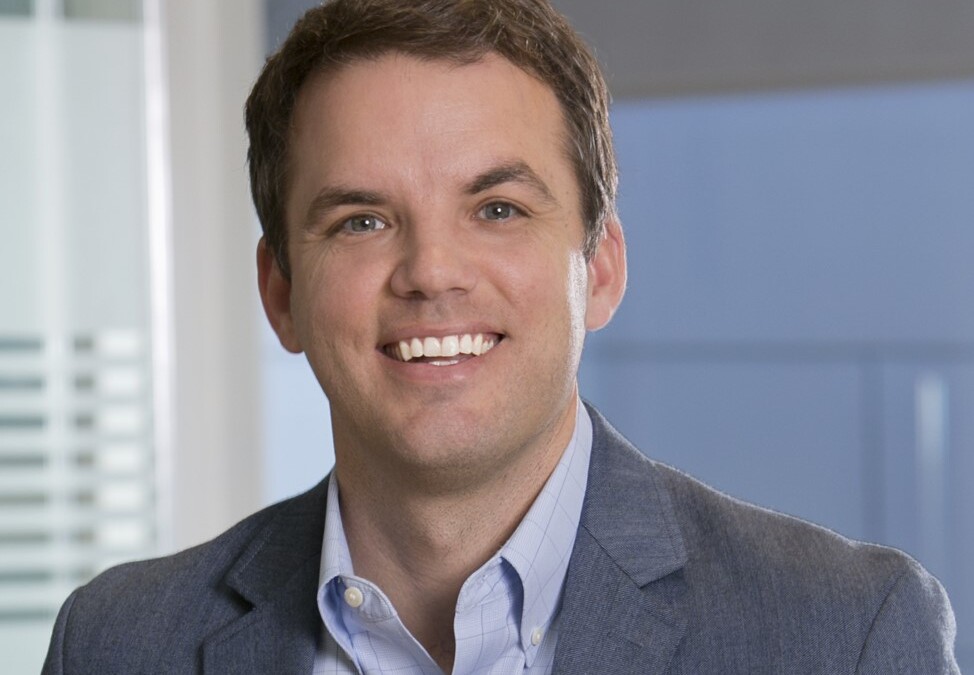
Zack Harrington
Zack Harrington is a federal program project manager within HORNE’s Construction team where he oversees projects and special assignments using established program policies and procedures.

Zack Harrington is a federal program project manager within HORNE’s Construction team where he oversees projects and special assignments using established program policies and procedures.

Gage Ray is an audit senior manager on the construction team at HORNE. He maintains regular communication with clients throughout the year, allowing him to develop a comprehensive understanding of their businesses, proactively identify potential challenges and address inquiries that arise during projects.
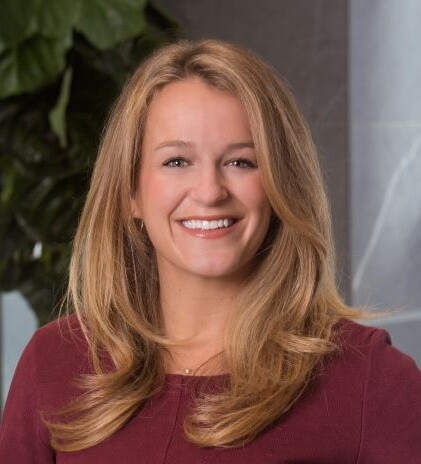
Mary Ivon Montgomery is a manager within HORNE’s Construction team with a focus on people solutions.

Step into the world of effective crisis communication tailored specifically for the construction sector. Whether you’re managing large-scale developments or overseeing on-site operations, we have practical insights in the webinar below to help you navigate uncertainties with confidence.
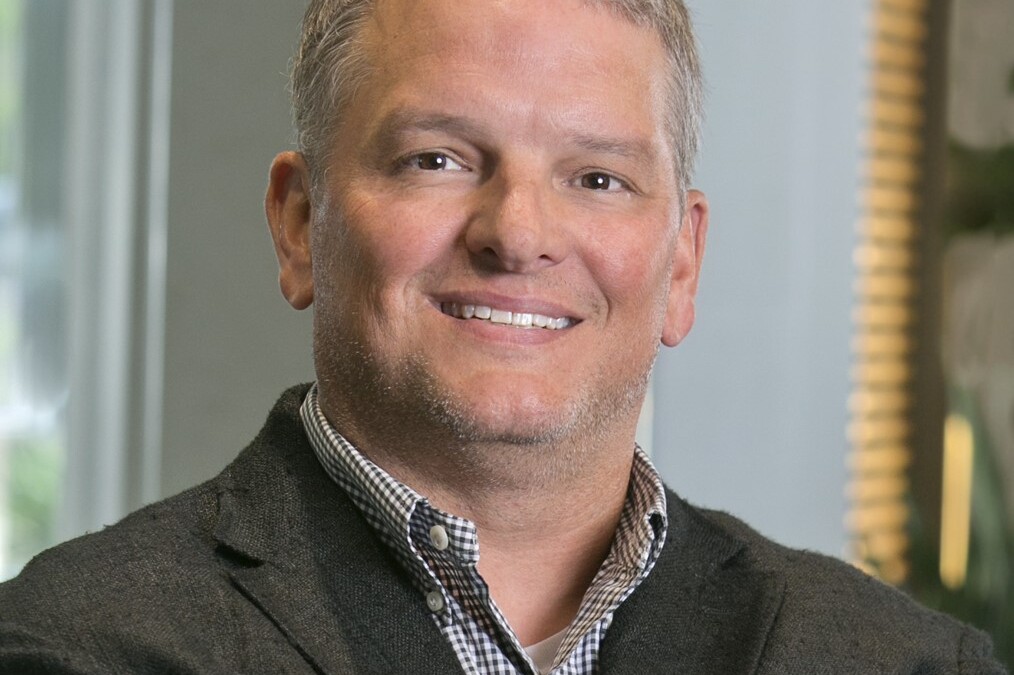
Kevin Jacobs is a senior manager on HORNE’s construction team, where he develops working relationships with construction clients by serving as fractional CFO, controller and advisor, overseeing all financial aspects of project accounting and reporting.

Are you confident that your team is prepared for an OSHA site visit? If the answer is no, or if you want to be more prepared, then join us as we explore the essentials of OSHA compliance and navigate the process of handling inspections and injury reporting.

Addressing performance issues within your team can be difficult.

Does your business currently have a new employee evaluation process? Navigating the intricacies of new hire evaluations can be daunting, especially in the construction industry.
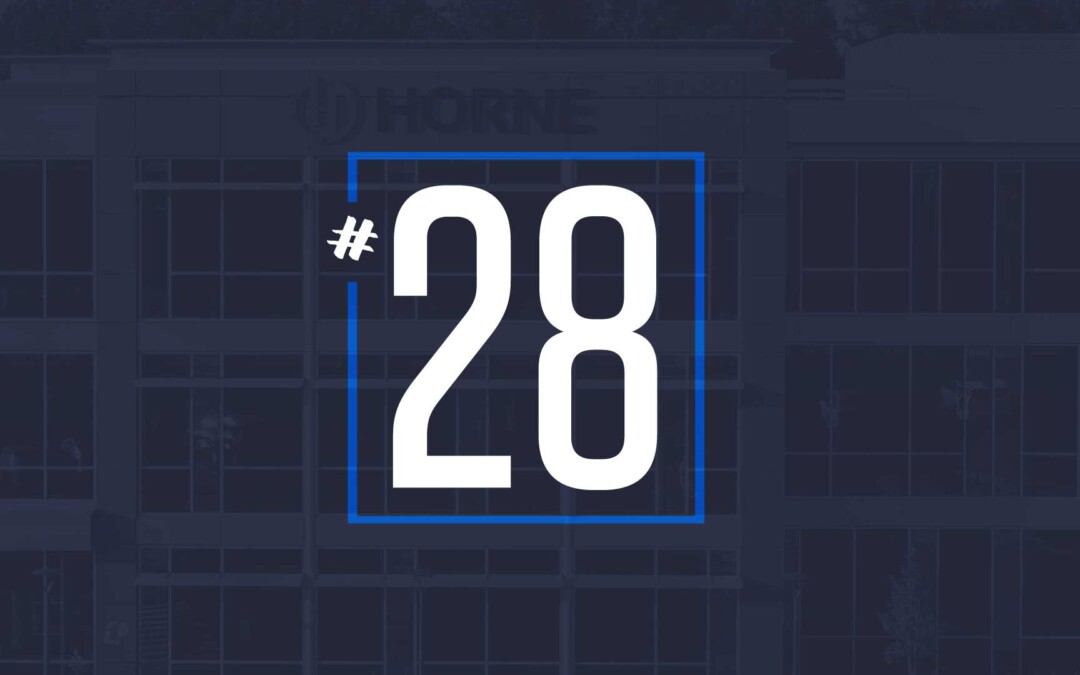
HORNE has been named one of the top 30 accounting firms in the U.S. by industry publication Accounting Today.

Are you prepared for an unemployment hearing? Navigating the intricacies of unemployment hearings can be daunting, especially in the construction industry.

In the ever-evolving world of construction, a meticulously crafted handbook is your North Star, providing essential guidance for both employers and construction crews amidst the intricacies of company policies, expectations, and values.

When it comes to expertise, sometimes it’s best not to build it yourself. As construction firms grow, their back office and C-suite needs evolve.

Like all things in the construction business, choosing the right advisor begins with a plan. Whether your construction firm is trying to grow to the next level or simply seeking ways to boost performance, having an advisory firm in your corner can make a tremendous difference — provided you’ve chosen the right one.

On January 31, the House overwhelmingly passed H.R 7024, known as the Tax Relief for American Families and Workers Act of 2024.

Joe Beall joined HORNE’s Construction team as a human resources consultant, effective January 1, 2024.

Planning for a successful future can seem overwhelming. Where do you start? How do you make time? Which questions should you ask? Today, we’ll present a process that can help you organize your thoughts and put you on a path toward a successful planning process.

As a business owner, is it a good idea to hire a “professional president” to keep various managers focused? Today, we’ll present some potential benefits of a professional company president.

“How hard can planning my exit really be? I already made it valuable, so all I need to do is find someone to buy it for what I want, right?” If you’ve ever watched a professional football game, you might be familiar with the armchair quarterback—someone who says, “How did he miss that throw? I could do that!”

Many business owners eventually reach a crossroads where their families want them to slow down and take it easy, even if they aren’t ready to. This can be even more challenging if, as one business owner put it, you “feel more appreciated at the office than at the dinner table.”

For many business owners, the business is more than a means to make money—it’s a part of their identity and a link to the past. This can make the idea of leaving it, and committing to the planning required to leave it successfully, very challenging.

Selling your business comes with major tax implications. You likely don’t want to pay any more than the minimum in taxes when you sell. With planning, it’s possible to reduce your tax burden and reap the most out of a business sale.

Business owners are used to having control. But some things are uncontrollable, and without a plan, those uncontrollable things can create negative consequences that reverberate.

Keeping the business in the family or among trusted employees is a point of pride for many business owners. And some heirs apparent truly can’t wait to run the business. Today, we’ll raise some important considerations if you intend to keep the business in the hands of insiders.

Many business owners choose to sell their businesses to third parties for several reasons. If you’re thinking about pursuing a third-party sale as your business exit strategy, consider these four steps to prepare yourself for a successful third-party sale.

Business owners deserve to get full value for their businesses when they decide to retire. But who determines what “full value” is, and how do you create it? Let’s look at three strategies you can implement to pursue and build your business’ value.

Running a successful business that generates wealth is incredibly satisfying. If there’s a downside to it, it’s that much of that wealth is generally illiquid, unless you sell the business or invest outside of your business.

A big part of being a successful business owner is your ability to ask questions. This innate curiosity allows your business to thrive, adjust, and evolve. It’s also a good way to begin planning for a successful future outside the business.

When you co-own a business, you likely don’t go into it thinking, “One day, we may loathe each other.” But over time, goals, ambitions, and the economy itself can change, creating strife among co-owners.

Planning for a successful future can seem like an event—a thing you do in the course of business. However, in many cases, this planning is much more like a relationship: with your loved ones who rely on you, with your employees, and with your advisors.

A common tragedy for business owners is facing a life-changing event, such as a sudden death or illness that devastates the business, without a plan. While these events may seem uncontrollable in the moment, the good news is that with foresight and planning, you can regain control over what seems uncontrollable.

One of the biggest changes your business will inevitably experience is a transfer of responsibilities. Transferring important responsibilities to someone else can be exciting and nerve-wracking.

As a successful business owner, the people closest to you likely rely heavily on you. They may also have expectations regarding your wealth. Your plans for how you’ll disperse your wealth, and the expectations others may have, can have major effects on your future.

Many successful business owners are successful because they think about things differently than most people. Others may recognize your personal brilliance and say to themselves, “I wish I could understand how she does it.”

We enter 2024 in volatile times, with economic conditions defying many recession predictions (largely driven by end-of-year consumer spending), global conflicts, and a looming presidential election.

We work with enough leaders like you to know that hard conversations are scary in their own way. You probably wouldn’t use the word “scary,” but there are real fears that get in the way.

How do you feel when you know you’ve got to have a hard conversation with someone?

Have you ever felt unappreciated? What was the situation? How did that impact you? Whether you’re aware of it or not, appreciation is a deep human need.

We hear it all the time: it’s hard to hire and keep people. There is obviously truth to this.

If you have any trouble finding, hiring, developing or keeping people—you should care about the Employee Lifecycle.

What does it mean, practically, to “get people on board” with change? It often boils down to communication. Specifically, effective change communication is: early and often, clear and compelling and other-centered.

Getting skeptics on board with change is very, very hard. Not impossible, but hard. If someone’s skeptical, it’s probably for one of two reasons.

Change is easier when people are actually excited about it. So, to change well, find out what people actually want—what would make them most excited if they saw it—and then incorporate as much of that as you can.

Change is everywhere. It can hurt us or make us stronger. It can divide us or bring us together. We believe one key thing can make the difference: how leaders prepare for, communicate during, and persist through change.

Lindy Wilkinson is a senior manager on the construction team at HORNE where she focuses on providing advisory, assurance and consulting services to clients.

HORNE’s Client Advisory Services team recently hosted their Wrapping Up the Year Workshop, a specialized session tailored for bookkeepers and controllers. This workshop served as a comprehensive guide to year-end best practices in bookkeeping and payroll along with other key construction tax updates.


Joseph Kasal is a senior assurance manager in HORNE’s Construction group. He specializes in offering consulting and advisory services to contractors, bonding agents, attorneys and sureties.


Payroll is undoubtedly complex and an administrative burden. The risk of ‘getting it wrong’ comes with a high price. Employers can face fines and penalties from the IRS, state governing bodies and the Department of Labor (DOL), to name a few. Furthermore, payroll mistakes can lead to costly missed opportunities. With that in mind, we would like to highlight a few of the most common [and costly] payroll mistakes you could be making with your in-house payroll.


Five non-profits across the states of Mississippi, Hawaii, Louisiana and Florida will receive support for their community efforts thanks to HORNE’s Seasons of Giving initiative, powered by the HORNE Community Foundation.
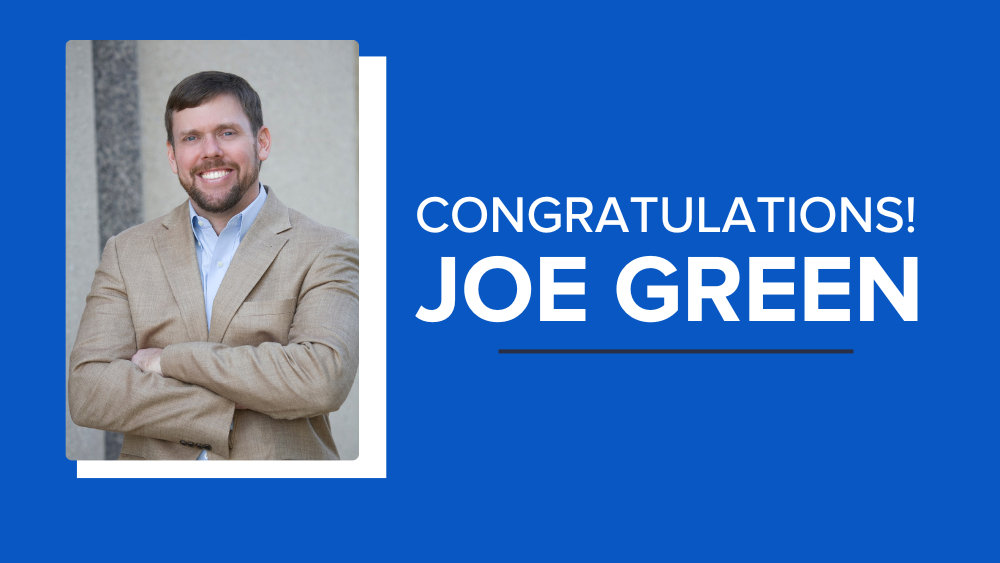

HORNE’s Board of Directors recently appointed Public and Middle Market Partner, Joe Green, to serve as the next firmwide director of assurance. As he takes on this new role, he will also continue serving as the firm’s SEC director.



Join our HORNE Managed Accounting Services Team for our Wrapping Up the Year Workshop on Thursday, November 16th! As we approach the end of 2023, this informational session promises to be a valuable opportunity for bookkeepers and controllers to gain insights and updates from our experts in the field.


Cybersecurity and cyber insurance are a priority in today’s world, but in the past few years, these issues have become even more important for companies with employees working remotely. Working from home has multiplied the risks and occurrences of data breaches, and breach costs also have grown.


Many leaders approach hard conversations the wrong way. The two most common mistakes we see are (1) allowing your emotions to set the tone and (2) making judgments about a person.


Recently we helped a family-owned general contractor re-engage two key employees. One was a supervisor whose future was in question as a large job was winding down. The other was a back office team member who’d become demotivated. Both were valuable to the business. The owners wanted to know: How can we help them stay?


If you’re looking to file an Employee Retention Credit claim with the IRS, please note that there is a hold on processing of all new ERC filings until at least January 1, 2024 – according to the IRS.


Passed in 1931, the Davis–Bacon Act established requirements for paying local prevailing wages on public works projects for laborers and mechanics. The goal was to keep wages for public works projects in line with private sector projects, and it impacts contractors and firms engaged in building, altering or repairing public buildings or public works.


You’re invited to HORNE Construction Forum 2023 in Jackson, MS. Join us for in-depth discussions on people solutions, networking opportunities, industry insights, government updates and more.
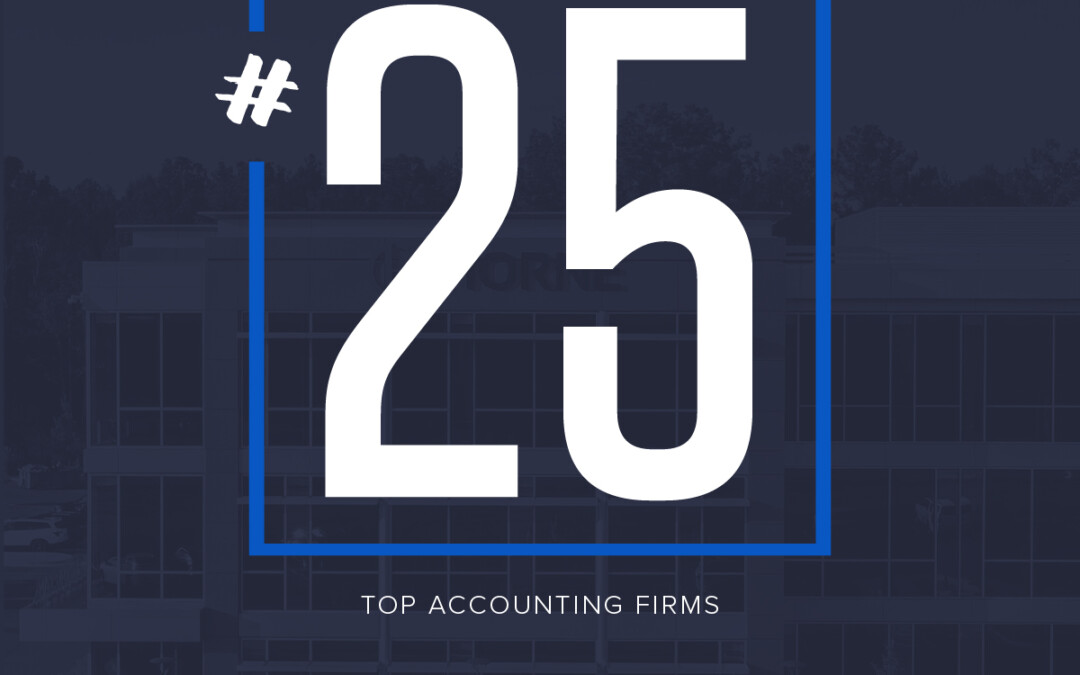

INSIDE Public Accounting has ranked HORNE number 25 on the Top 500 Firms list for 2023.


One of the simplest and most cost-effective ways to improve hiring is to ask better interview questions. But what is a “better” or “worse” question? Today we’ll explain the anatomy of a better interview question and give one example that applies to any position.


Let’s focus on goal setting. Take a moment to think about your goals. How confident are you that you can achieve them? How clear are they?
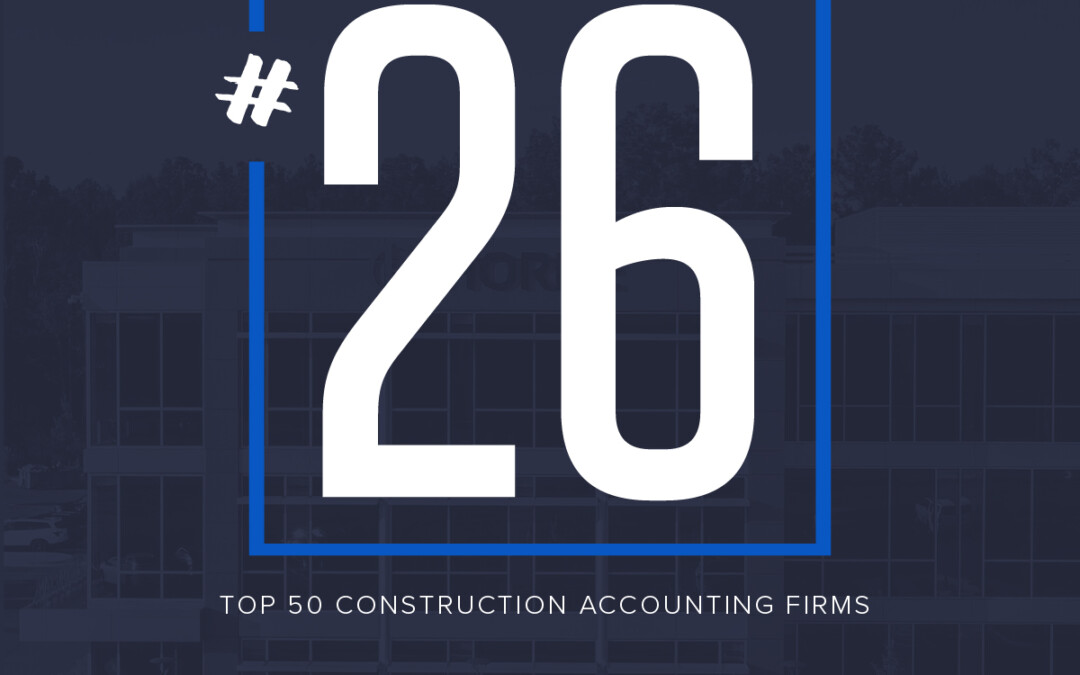

Construction Executive has ranked HORNE in the Top 50 Construction Accounting Firms™. The industry publication ranked HORNE number 26 for the second year in a row on its annual list of the Top 50 Construction Accounting Firms for 2023.


In this article, we’re focused on hiring. Almost all of our clients tell us it’s hard. Whether it’s unskilled labor, project managers, estimators, supervisors or executives—they’re all hard to find, and increasingly hard to keep.
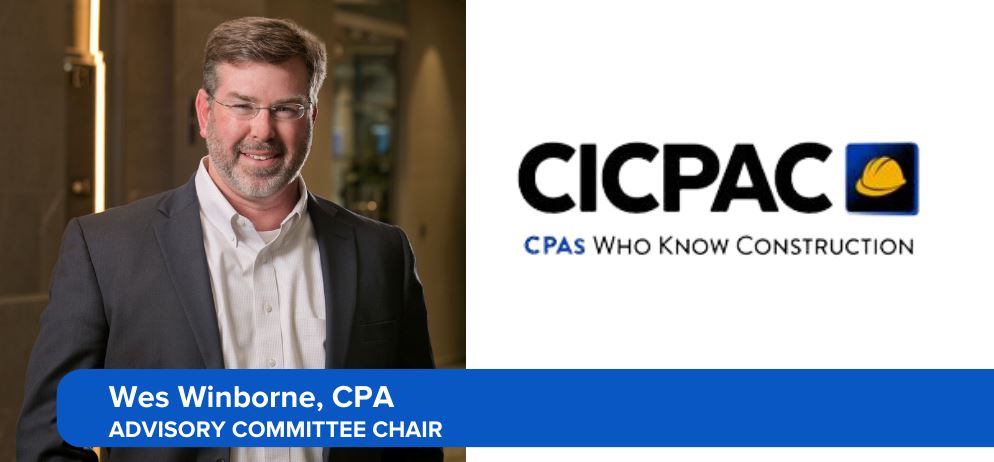

Wes Winborne, who serves as managing partner in HORNE’s Construction group, has been elected Chair of the advisory committee in the Construction Industry CPAs and Consultants (CICPAC) group for the 2023-2024 year.
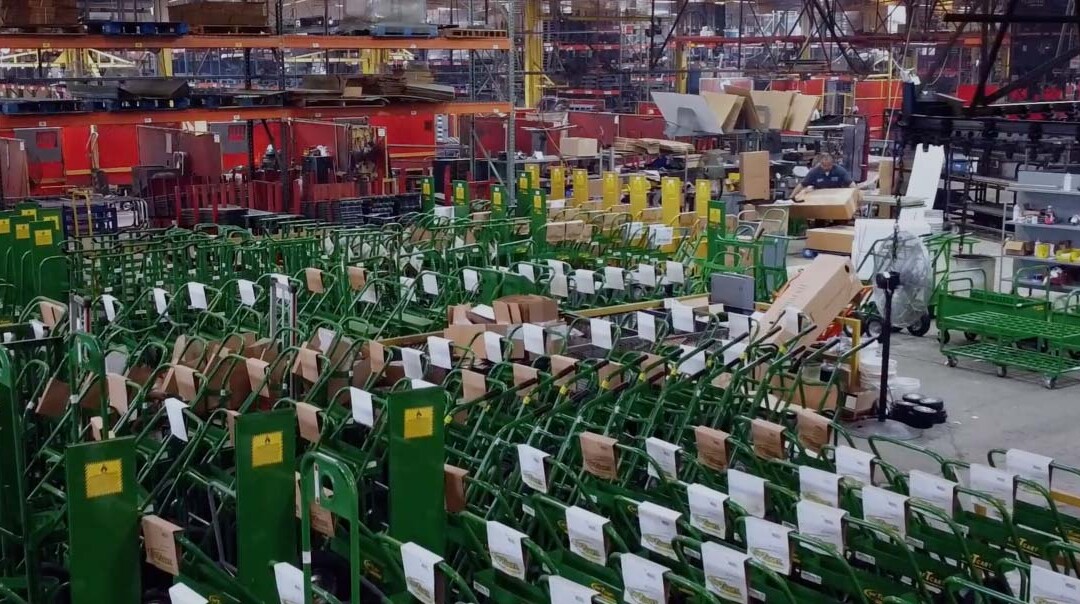

HORNE recently partnered with Saf-T-Cart, an industry leader in cart manufacturing, to transform their productivity and enhance their business performance. What initially began as a collaboration to address accounting needs soon evolved into a broader look into opportunities beyond the scope of financial services.


As a partner, Wes Winborne provides assurance services to the construction industry, but his areas of enthusiasm aren’t limited simply to business consultation.


The construction industry has faced its fair share of challenges in recent years. But now, with continued federal funding, the industry is expected to experience growth. This funding will give opportunities for contractors to bid on various projects and secure new business.


HORNE’s cyber team recently earned The Cyber AB Certified Third-Party Assessor Organization (C3PAO) designation which allows HORNE to perform specific cyber security assessments for Organizations Seeking Compliance (OSC) through contractual agreements.


CICPAC, in collaboration with economist Dr. Chris Kuehl and Armada CI, has launched a quarterly economic report that specifically targets the construction sector.


Wes T. Winborne has assumed the role of managing partner for HORNE Construction, effective January 1, 2023.


One of the most comprehensive changes included in the TCJA is the changes in tax accounting methods available for contractors.


Contractors have faced myriads of tax changes over the past several years. Some of the changes directly impact treatment of business travel, meals, and entertainment for these taxpayers.


For many owners of independent construction firms, selling their business is more than an exit strategy; it is the cornerstone of their retirement plan.


In most companies, developers are focused on meeting project deadlines, and that often leads to applications that are insecurely coded. Custom development can multiply vulnerabilities. Some 48 percent of developers think they leave vulnerabilities in their code, according to the State of Developer-Driven Security Survey 2022 from Secure Code Warrior.


When it comes to sustaining or growing a business today, the status quo isn’t good enough anymore. We are in exponential times where the change around us is no longer incremental and we must anticipate the opportunities and challenges facing us in the future.


Exponential times have raised the bar for us to sustain business growth today. We are experiencing fast-moving change in so many facets of our businesses. Incremental thinking will only put us further behind so an effective strategic plan must be a priority.


A critical challenge facing businesses today is leadership development. Opportunities for exponential growth and succession of various leadership roles require companies to plan and be intentional to develop the leaders to secure a bright and growing future.


Large and small businesses have gone through massive changes in the past few years. Many saw their profits fall; they lost employees and suffered from supply chain issues.


The global pandemic reshaped the way we work. Not only did it expedite the shift to remote teams, it also highlighted the importance of work-life balance and allowed many workers to re-think their personal and career goals.


Cybersecurity risks challenge your business development. You need to address the bad risks so you can take the good risks that let you grow and maneuver to stay ahead of your competition. You also need expert insights into cyber risk and how you must defend your organization and protect your growth.


Technology’s power to disrupt is undeniable. One of the clearest examples rests in our pockets and purses. Decades ago, one would need a camcorder, gaming system, computer, stereo and encyclopedia – as well as a telephone – to replace just one of our mobile devices.


Since the early 1700s, when the first insurance companies were formed, organizations have sought to leverage data. What’s unique about now is the sheer amount of data available, thanks to how fast it’s generated.


If you don’t know your organization’s strategy, there’s a good chance company progress can be derailed. Change that equation with a dynamic and effective strategic plan.


Good preparation is crucial to good strategic planning – but you can’t finish without a robust strategic implementation program


Join us at HORNE Construction Forum 2022, on November 16th, beginning with breakfast at 8:30 a.m. This forum will offer networking opportunities, educational insights, post-election discussions and tips to help you embrace change and think differently about the future of business.


The U.S. House of Representatives and the U.S. Senate each have passed the Inflation Reduction Act, a $430 billion package that includes several changes to tax laws. President Biden signed the bill into law on August 16


Construction Executive has once again ranked HORNE as one of the top construction accounting firms in the country. The industry publication ranked HORNE number 26 on its annual list of the Top 50 Construction Accounting Firms for 2022. HORNE moved up two spots from 2021’s ranking of number 28.


Emily Carpenter is a director in construction at HORNE where she specializes in business advisory and accounting services. She focuses on general ledger reviews, sales tax and payroll consulting, reporting and payments, 1099s and preparation of financial statements.


The pandemic presented unprecedented challenges for American businesses and local governments. As our nation heads toward a post-Covid environment, equally unique opportunities are taking shape. What does this mean for you?


Increased consumer spending during the pandemic and rising inflation has also resulted in higher tax revenues for nearly all states.


2021 Tax Planning. Changing entity types, accounting methods, new deductions for qualified businesses, new depreciation alternatives and new tax incentives for qualified investments are just some of the provisions in the TCJA that will require careful analysis and proactive planning for construction clients. The CICPAC Tax Thought Leadership Committee has compiled an updated summary of those changes potentially impacting construction clients in this whitepaper.


The CICPAC Tax Thought Leadership Committee has compiled a summary of the tax provisions included in the Coronavirus, Aid, Relief and Economic Security Act (CARES Act) that may impact our construction clients. This whitepaper provides an overview for further consideration for tax planning in 2021 and beyond.


Entrepreneurs and business owners spend years building their business — and often years before that dreaming of and planning for it. Every owner knows the journey it took, from the highs of launching the business or securing the first customer to the lows of meeting an early payroll liability or facing the uncertainties of the recent pandemic.


Construction companies big and small need to begin preparing now for the projects that will be generated from the recently passed and signed infrastructure bill.


Nexus is defined as a substantial connection to a state that allows the state to tax a taxpayer. Although this may seem pretty straightforward, things can get a little complicated for contractors working on out-of-state jobs. It’s important to determine if your construction company is responsible for state sales tax or income tax before bidding on an out-of-state job to ensure an accurate bottom line on the project and to also ensure compliance with state agencies.


If you simply are not emotionally ready to sell, if there is still fire in your belly — enough fire to fuel your continued investment in the company — or if you ultimately want to leave the business to family members or employees, then you may not be in a position to sell your business — yet.


Determining your exit plan well in advance of your departure gives you and your advisors the time necessary to make your goals a reality.


A successful business exit plan achieves three important owner goals: achieving financial security, identifying the right successor and minimizing income tax.


In this live webinar, our Public & Middle Market team members discussed PPP2 updates, Employee Retention Credit, tax changes and more.


“That won’t ever happen.” That is what I told my father-in-law, Ralph, every time he wanted to discuss what I should do if he were to pass away before his father did.


With the endless expansion of technological advancements in the past couple of decades, companies are now able to collect enormous volumes of data from all areas of business. Data analytics is the solution to transform all the data into information that can be used to improve your company’s bottom line. Identifying your company’s key performance indicators (KPIs) is the most important part of using data analytics to help achieve your business’s goals. KPIs can have a variety of origins ranging from measuring financial ratios to customer relationships.


Most construction business owners will spend a lifetime making sure their businesses succeed. After all of your hard work, do you really want to leave the fate of your business in someone else’s hands? As it is likely your largest asset, you’ll want to ensure your business is protected through a detailed estate plan. This plan should focus on minimizing estate and gift taxes as well as protecting your wealth for your family.


Statistics indicate baby boomers account for more than 50% of the construction industry. That means half of owners, along with their skills and knowledge, are headed towards retirement. Even more alarming is only half of those owners have a succession plan. If your company faces a disruption or change in ownership it reduces its chance of survival to only a small percentage. Even owners who don’t have an immediate retirement on the horizon need to have a plan.


You’ve done it. You’ve built a booming construction company and now you’re ready to relax. As a business owner, it’s important to plan your exit from the company years in advance to ensure you can depart with confidence. How will your exit impact you and your family?


Less than a year. That’s how long it took a successful construction company to permanently close after the owner unexpectedly passed away. Before his death, the company was thriving. But without a business continuity plan in place, the business didn’t survive a year.


HORNE was recently selected as one of the Top 50 Construction Accounting Firms in the nation by Construction Executive Magazine.
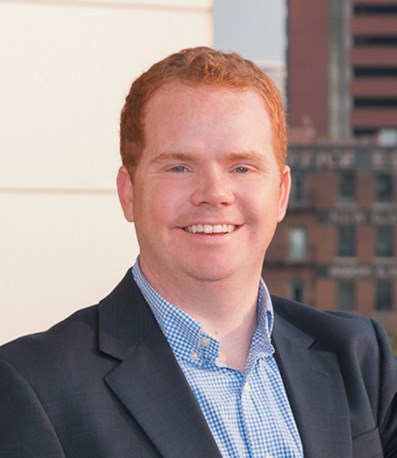

Greg Kurth is a manager in construction services at HORNE where he specializes in federal and multistate tax compliance, identifying tax planning opportunities and other financial and business advisory assistance.


Matt Ferrell is a director at HORNE where he provides assurance services to the construction industry. He joined HORNE in 2007.


Matt Elkins is a director at HORNE. He provides assurance services as well as management advisory services to the construction industry. He joined HORNE in 2007. His experience includes job cost accounting, revenue recognition, management reporting and analysis for contracts.


Justin Egger is a senior manager in the construction services practice at HORNE. He specializes in corporate and individual tax compliance, resolution of tax controversies, and tax planning. He strives to simultaneously manage the tax department’s workflow, provide timely and accurate deliverables, and build and maintain relationships with clients and prospective clients.


Nick Dubuisson is a construction partner where he provides the financial clarity needed to support his clients’ business goals.


Mitch Beckwith is a director at HORNE where he helps construction clients navigate their tax and general business administration needs. Mitch has experience in many industries including construction and general contracting, food and accommodation services, real estate, manufacturing, healthcare and agriculture.
Tax rules get more complex every year. Every decision you make impacts your tax situation. HORNE knows the vital impact of proactive tax planning.
Risk management involves every facet of your organization, regardless of your industry. We help transform risk into opportunity to give you peace of mind.


Bruce Walt is a partner at HORNE where he leads business development for business strategy, data and technology, learning and development, marketing, and process transformation solutions.
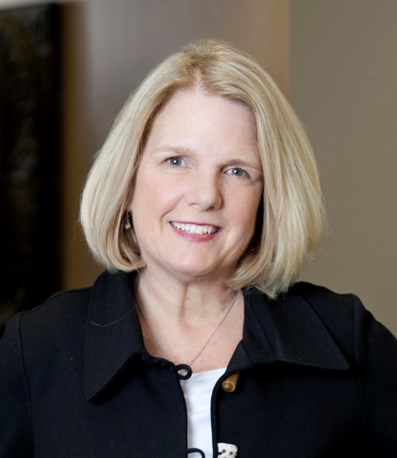

Anita specializes in business planning, succession planning and estate planning for closely held businesses and high net worth families. By guiding clients through estate and gift, retirement and tax strategies, we help them meet business goals and plan for near term and future needs.








When you’re busy juggling projects, it’s hard to picture walking away from your business. But sooner or later, all businesses transition — whether through acquisition, inheritance, retirement or the death of the owner.








Fraud has always been a concern for contractors. But recent technological advances such as cybersecurity, artificial intelligence and internet-enabled machinery have opened a new realm of potential risk and exposure.








As your business grows, so will your needs. Our Strategic Consulting services can help you manage growth and profitability and position you to address challenges and opportunities as they arise.








Day-to-day financial tasks are time consuming and take in-house resources that are often better used in other areas. Free yourself from having to staff, train and oversee back-office functions, and remove the headaches and worries of turnover and compliance with Client Advisory Services from HORNE.
















With owner-operated companies, it’s easy to blur the line between personal and business finances. How can you take a long-term financial view for both? Is it smarter to leave money in the business or take it out? What’s the best way to manage your personal and business taxes?
The amount of time it takes to oversee routine accounting and financial operation functions is increasing. Let HORNE provide your managed accounting services.


Reduce exposure to cybersecurity threats. Stay ahead of the ever-changing regulatory requirements and strengthen your cybersecurity posture.


The best wealth building strategies are achieved when we collaborate with you, your wealth advisor and your attorney to create your plan


HORNE’s audit and compliance services provide a strategy to institute controls and manage risk and compliance to keep you prepared for opportunity.


Part of the life cycle of a business is a change in ownership, when an owner or founder sells his or her business.


Wes Winborne’s construction clients come to him for peace of mind. Whether they face tasks like audit and tax support, internal control reviews, or guidance for issues like job costing, bonding or computer consulting, I am dedicated, experienced and ready to do what it takes. Our team knows construction and the financials behind it. To help you focus on your building your business, we focus on taking care of accounting and offering helpful guidance.


The construction industry is constantly evolving and contractors need a visionary partner to help guide them to successfully compete, grow and plan for the future. Lee Klein not only serves clients by delivering on opportunities and helping them solve today’s problems but also has the foresight to help them anticipate and prevent tomorrow’s.








You can’t predict and protect profitability unless you understand the true cost of doing business. A thorough analysis of job costs can reduce your risk of loss, as well as help fine-tune profitability as your business grows.


Many companies and individuals have applied for funds from the Small Business Administration (SBA) 7(a) Relief Loans Paycheck Protection Program (PPP). Our previous communication addresses the recent suspension of the PPP due to inadequate funding. For our clients that did not receive funds or approval prior to the suspension, we will continue to work on completing applications and submitting to lenders in anticipation of additional funds being made available under the PPP.


Businesses today have to make tough decisions and search for funds to keep doors open and employees paid. Many applied for the SBA’s PPP loan to offset losses during the COVID-19 shutdown. The loan offers short-term relief, but there may be another opportunity for businesses to find additional monies in the form of unclaimed Mississippi state tax incentives.


It has come to our attention that a new email phishing or “spoofing” scheme is being sent to businesses seeking financial assistance due to COVID-19. The emails are an attempt to scam business owners that have applied, or are considering applying, for Paycheck Protection Program loans backed by the U.S. Small Business Administration. These emails may look legitimate and appear to come from your bank.